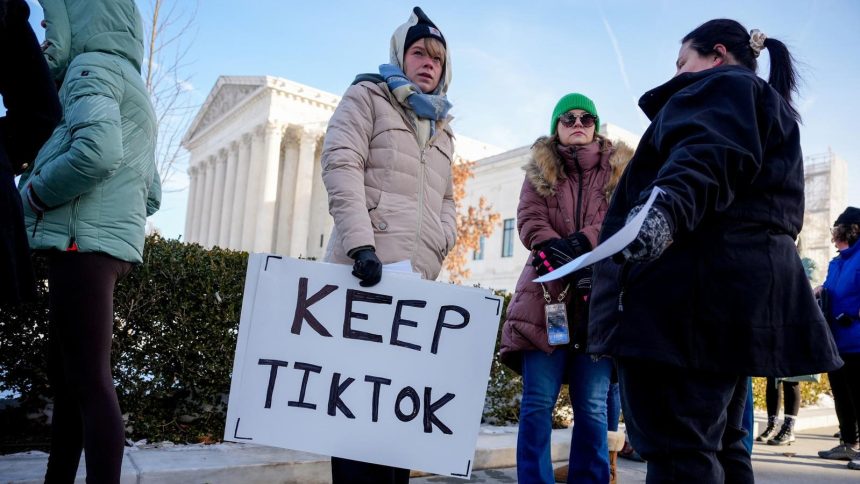The Looming TikTok Ban: A Seismic Shift in the Social Media Landscape
The potential ban on TikTok in the United States, a scenario increasingly likely following the Supreme Court’s hearing on Friday, has sent tremors through the stock market, creating both winners and losers in the competitive social media arena. The Supreme Court heard arguments in TikTok’s appeal against a Montana law demanding its Chinese parent company, ByteDance, divest its TikTok holdings or face a nationwide ban. The justices’ skepticism towards TikTok’s arguments signaled a potential affirmation of the ban, triggering a chain reaction in the financial world. This potential ban, with a deadline of January 19th, looms large, threatening to reshape the social media landscape and redistribute billions of dollars in market value.
The stock market reacted swiftly to the Supreme Court hearing, with the ripple effects most prominently felt among social media companies. While the overall market trended downwards, with the S&P 500 and Nasdaq experiencing significant drops, companies positioned to benefit from TikTok’s absence saw their stock prices surge. Snap, the parent company of Snapchat and its TikTok competitor, Spotlight, experienced a 4% increase, reaching its highest intraday share price since August. Meta, the owner of Instagram and its Reels feature, also benefited, with its stock rising by 1%. These gains underscore the competitive landscape of short-form video platforms and the potential for rivals to capture TikTok’s substantial user base in the event of a ban.
Not all tech giants were equally affected by the news. Alphabet, parent company of Google and YouTube Shorts, saw a smaller decline than other major tech players like Apple, Nvidia, Microsoft, and Amazon. While these companies also offer short-form video options, their business models are more diversified, making them less susceptible to the immediate impact of a potential TikTok ban. This divergence highlights the varying degrees of reliance on the short-form video market within the tech industry and the potential for reshuffling market share if TikTok is indeed banned.
The day’s biggest winner was undoubtedly Meta CEO Mark Zuckerberg, whose net worth increased by $1.5 billion, the most significant single-day gain among American billionaires. This boost further solidifies Zuckerberg’s position as one of the world’s wealthiest individuals and underscores the potential financial windfall for Meta if it can successfully absorb TikTok’s user base. Conversely, the biggest loser was Oracle co-founder and chairman Larry Ellison, whose net worth plummeted by $10 billion. Oracle, a key technology partner for TikTok, hosts the app’s U.S. data, and had previously warned of financial repercussions should a ban be enacted. Their 5% stock drop, the worst among mega-cap companies, reflects the market’s assessment of the potential collateral damage of a TikTok ban.
The unfolding situation has spurred significant activity in betting markets, with the odds of a TikTok ban by May surging from 30% to 70% in just one week. This shift demonstrates the growing conviction within the market that a ban is imminent and highlights the influence of regulatory decisions on investor sentiment. The dramatic shift in odds also underscores the speed at which the narrative surrounding TikTok has changed, reflecting growing concern over national security and data privacy issues.
This legal battle and its potential market ramifications are unfolding against a backdrop of intense competition within the tech industry and escalating tensions between the U.S. and China. ByteDance, TikTok’s parent company, achieved a $220 billion valuation in a 2023 funding round and internally valued itself at $300 billion in November, trailing only SpaceX in the rankings of the world’s most valuable private companies. The potential ban on TikTok in the U.S. represents a significant threat to ByteDance’s global ambitions and could trigger a major restructuring of the social media landscape. The outcome of this legal battle will likely have long-lasting implications, shaping the future of social media, online advertising, and the balance of power between global tech giants.



